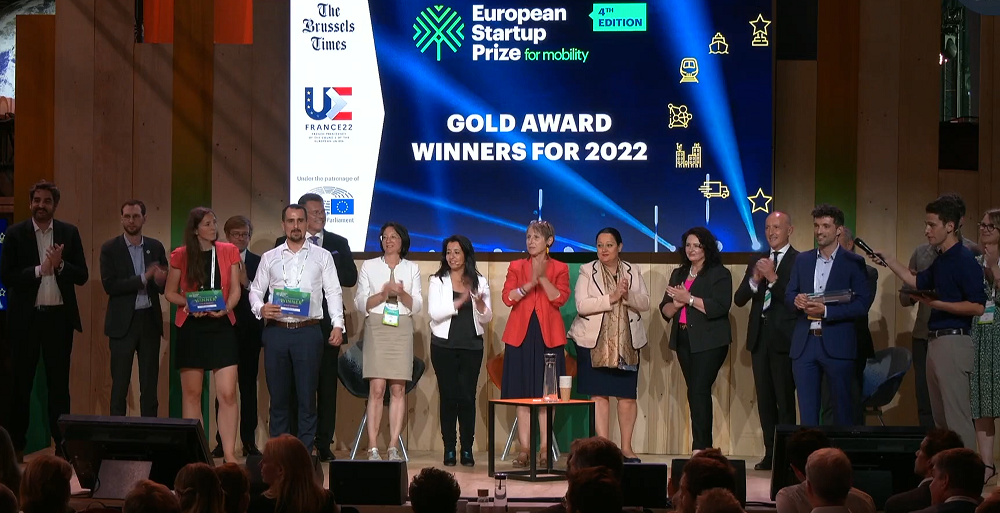This year's 10 winning startups in the annual European Startup Prize for mobility have attempted to push the boundaries in terms of mobility innovation and presented ambitious and creative projects with promising business models.
As the first post-Covid pandemic edition, this year's edition saw a large share of 'covid-baby startups', which had been created during the pandemic. With an average of 12 employees per startup, compared to 30 in the previous year, there was a marked difference in terms of size with more earlier-stage companies than before.
Several different mobility solutions were presented during an award ceremony in Paris. Some solutions aimed to provide cleaner long-distance travel, such as Zeleros from Spain which has developed a hyperloop technology, or energy efficiency software for aviation by Polish startup Storkjet.
Others focused on micro-mobility solutions, such as Dutch electro cargo bike platform BAQME, and GO Sharing, which offers e-scooter, e-bikes, and e-cars.
Several companies also explored software and data solutions, such as French startup Vianova, which provides big data to cities, Heex Technologies' AI extrapolation of transport datasets, and NOWOS, whose software predicts the maintenance and recycling of batteries.
Bia Power SL presented software which analyses vehicle changing patterns, and even accessibility was taken seriously with a solution by REVOLVE AIR for a foldable wheelchair on public transport.
In terms of the startups’ demographics, three trends were evident this year. First, the Netherlands stood out in this year’s competition, with three of the ten winning startups, namely Baqme, Nowos and Go Sharing.
The European Startup Prize also made a conscious effort to look at the gender-balance of applicants’ boards. This year, the share of startup applicants, which were co-founded or co-managed by women increased to 30%. Three of the winning companies are woman-led, nameil Baqme, Nowos and Bia Power.
The Final ceremony, in which the startups pitched their ideas in front of the entire ecosystem was broadcast by The Brussels Times and can still be watched here.

